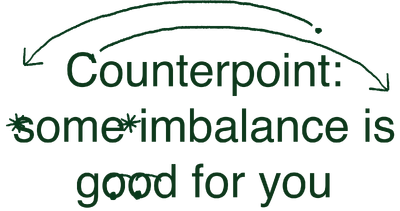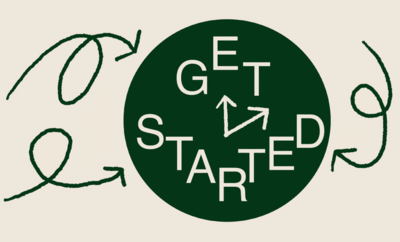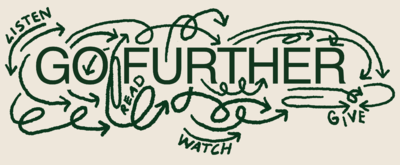Is life balance even possible? Or is it like 0% body fat and the six-minute mile—achievable only for a select few and otherwise just around to make the rest of us feel bad about ourselves?
While the word balance (and all it implies) may make you roll your eyes, it’s actually essential for our health and happiness to weigh how we’re spending our time—and make sure we’re not going too hard in one direction or neglecting another. Experts say there are four universals that make life feel well-rounded (social life, work, family, and mind-body pursuits). But only you know the right mix for you.
To have an honest conversation about balance, we first need to acknowledge its relationship with privilege. So much of balance hinges on having the means to choose: the choice to scale back work (and therefore income) and spend time with family, for example. It’s not just a class issue; gender and race also affect how accessible balance is—more on that last bit in this week's personal essay.
A second part of the balance conversation is the caveat that imbalance is an intrinsic part of human existence—it’s a feature, not a bug. Here’s how to tell if you’re busy in a good way or so buried you need to recalibrate.

When you’re working too much or you don’t feel like you have any free time, your system inevitably rebels. Living in a chronic state of imbalance (aka, chronic stress) can cause anxiety, insomnia, and depression, according to the American Psychological Association. And forgoing vacations can even increase your risk of a heart attack.

Over 2500 years ago, Aristotle and the Buddha preached the benefits of taking the middle way. The Buddha cautioned against self-indulgence on the one hand and total self-denial on the other. Aristotle was a fan of the golden mean—the sweet spot between extremes—and believed the rational mind should overrule excessive passions. “Freedom,” he wrote, “is obedience to self-formulated rules.” In short, one cookie is fine, 10 are not.

It can feel amazing to go all out with something (a new relationship, a fitness obsession). When you’re hyper-focusing on one area, your time for everything else shrinks, which isn’t necessarily bad—as long as it’s your intent (I’m taking a grueling startup job, which means I won’t make many home-cooked meals, but in six months things will settle down).
If you take the long view, periods of intense focus may actually bolster your overall sense of balance. Just watch for signs of stress. If your migraines are back or you’re waking at 3 a.m., that’s your body telling you to dial something back.

Balance can be extra tricky when you’re toggling between career and parenting (consider: women still do about two more hours of housework a day than men). It’s not just a mom thing: All caregivers need backup and societal support. This is especially true of hourly workers, who may not have any paid time off. While not everyone has access to nannies and dog walkers, we can all lean on friends and family more than we think: Research shows we tend to grossly underestimate how likely others are to help us out.

Rebalancing acts: Doable exercises to find your own healthiest blend
List 3 things you want to make time for
What three things would make you feel happier, if only you had time? They could be big things (take up guitar, write a screenplay, paint the house) or small ones (meet a friend for a hike, make pizza from scratch, donate barely used clothes). Next, go to step 2 to fit these things in.
Drop 15 minutes, add 15 minutes
Every day, think of one thing you’d like to do a bit more of—and one you could cut back (15 minutes less on Instagram, 15 minutes more for a short yoga class). Keep a running list on your phone. (Both Androids and iPhones let you track how much time you’re spending in any given app.)
Do a no-chores weekend
Escapes from the grind help us reset, but who can get away? Picking any weekend and calling it a vacation works, too, according to research. Workers told to “treat this weekend like a vacation” had better days off and a happier return to work. Knock off your chores before the weekend and have a duty-free 48 hours.

READ
Feel spread too thin? In Essentialism: The Disciplined Pursuit of Less, leadership strategist Greg McKeown argues we would all be better off going deeper—not wider.
LISTEN
Tune in to the episode “For Whom the Alarm Clock Tolls” on Yale psychology professor Laurie Santos’s podcast The Happiness Lab. Here she chats about the importance of doing nothing and how even the most overscheduled individuals can find pockets of free time.
DO
Finally! Someone made an app that combines the joys of forestry with honing one’s time management skills. But seriously, we love Forest, a fun tool that helps you manage your time and make space for all the things you want to do in a day.
GIVE
Get involved with MomsRising, a national nonprofit organization working to help women and mothers on issues ranging from access to childcare to workplace justice.

Wellness stories you won’t find anywhere else.

